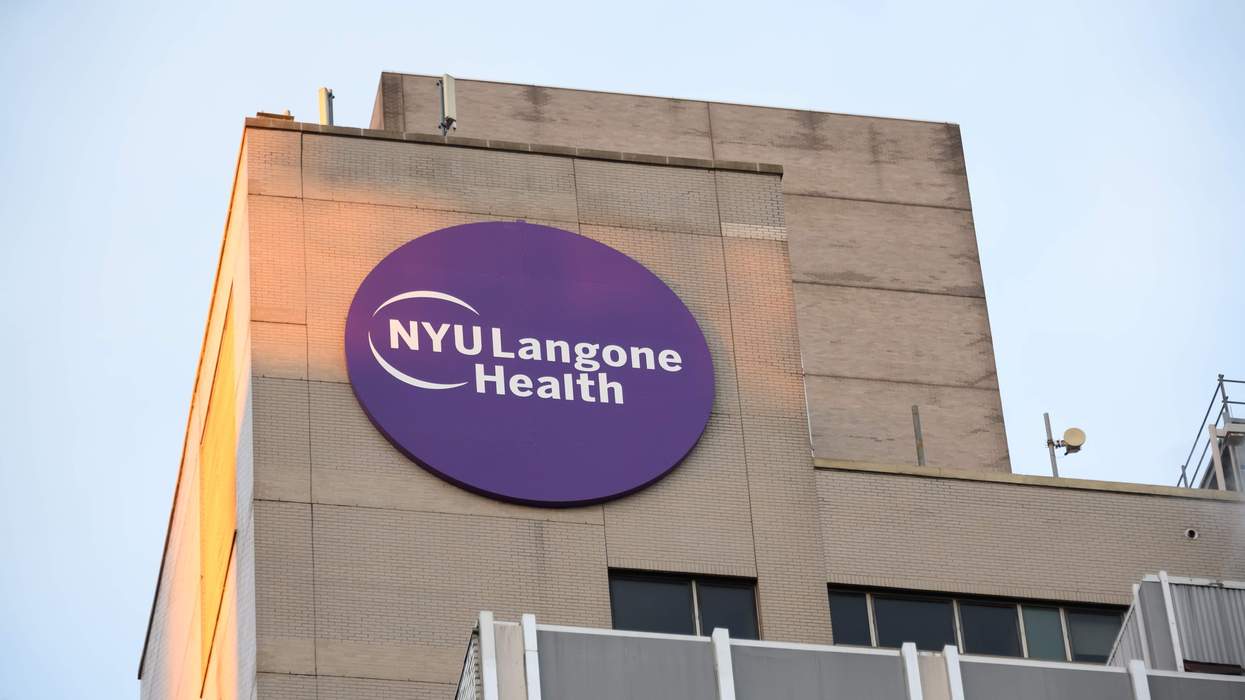Arnold Eisen has already influenced American Judaism with research showing that more individuals are following their own spiritual path at the expense of the nation's Jewish community.
Now he's got a new way to put his scholarship to use, as chancellor of the Jewish Theological Seminary of America, the flagship institution for Conservative Judaism, located in New York.
Eisen, 56, who was installed Wednesday, is only the second layman to lead the school since it was founded 121 years ago as the intellectual center for the Conservative movement, which follows tradition while allowing some changes for modern times.
A leading analyst of secularization and other modern trends shaping U.S. Judaism, he most recently served as professor of Jewish culture and religion at Stanford University.
But for the past year, he's been on tour--traveling the country asking Conservative Jews how they can revitalize their 760 synagogues in North America.
''The way to bring people in is to be a community that is truly welcoming,'' Eisen said in an interview in his Upper West Side office. ''You don't seek some lowest common denominator or go with what's trendy and hip. You open your doors wide.''
Once the largest branch of American Judaism, Conservative Judaism has been eclipsed in size by the liberal Reform movement, which has about 900 synagogues and is considered more open to interfaith families. For Conservative Jews seeking more traditional worship, Orthodox congregations are a popular choice.
Conservative Jewish summer camps and day schools are thriving, but when the children become adults, they often move to other branches of the faith. Some alumni of the seminary do the same.
Eisen said he's encouraged that ''all this leadership goes to klal yisrael''--the entire Jewish community. He is starting a program that will train Conservative and Reform rabbis together so they can build relationships across movement boundaries.
Yet he also is committing the resources of the seminary to keep the Conservative movement vital on its own.
''If young people leave our movement because they want an intense davening [prayer] experience and can't find it...then we are at fault,'' he said.
The seminary will be working with 10 pilot congregations to discuss what engages them and what they love about Jewish life. He hopes the discussion can be expanded nationwide.
The goal is to re-create synagogues as centers of study, prayer, and social justice work while making them more inviting for newcomers. ''It's a regular occurrence for people to come to a synagogue and they are never invited to a meal,'' Eisen said.
The school also is reviewing its curriculum for rabbis and cantors, planning changes that can help them cope with the demands of running a synagogue and working with congregants. Eisen wants students to learn more about the American Jewish community as a whole, not just synagogue life, and receive more training for their work as counselors.
Eisen, who was raised as a Conservative Jew, said he had considered becoming a rabbi, but decided he could serve the community as a scholar.
A father of two college-age children, he earned a bachelor's degree in religious thought from the University of Pennsylvania, studied sociology of religion at Oxford University, and completed his doctorate at Hebrew University in Israel. His wife, Adriane Leveen, is a Hebrew Bible scholar who teaches at the Reform seminary, Hebrew Union College-Jewish Institute of Religion.
Last December a committee of scholars that interprets religious law for Conservative Judaism voted to allow seminaries to decide whether to admit openly gay students. Eisen supports ordaining gays, and the first openly gay and lesbian students at JTS started this fall.
Among Eisen's role models is Rabbi Abraham Joshua Heschel, who taught at the Jewish Theological Seminary and was revered for his intense piety, his analysis of modern humanity's relationship with God, and his activism on civil rights and other issues.
As a college student, Eisen convinced Heschel to sit for a two-hour interview in 1971, the year before the rabbi died.
''He changed my life by giving me the example of a man who on the one hand marches with Martin Luther King, protests the war on Vietnam, marches for Soviet Jewry, and meets with the pope, but on the other hand is deeply immersed in tradition and speaks out of that tradition,'' Eisen said.
One of Eisen's best-known books is The Jew Within, Self Family and Community in America, which he coauthored with Steven Cohen, about how a growing number of American Jews are altering traditions to suit their personal beliefs and observing Jewish rituals in the home instead of the synagogue. Only 40% of American Jewish households belong to a congregation, according to the 2001 National Jewish Population Survey.
The Jewish community is deeply divided over whether its resources are better spent trying to convince unaffiliated Jews to participate or bolstering those who have chosen to be involved. Eisen leans toward the latter, seeing the best chance to renew the community in working with people he and Cohen have called the ''moderately affiliated.''
''No Jew is unimportant,'' Eisen said. ''On the other hand, you have to strengthen those who are already active.
''We have the resources,'' Eisen said. ''There is so much good work to do.'' (Rachel Zoll, AP)















Charlie Kirk DID say stoning gay people was the 'perfect law' — and these other heinous quotes
These are some of his worst comments about LGBTQ+ people made by Charlie Kirk.